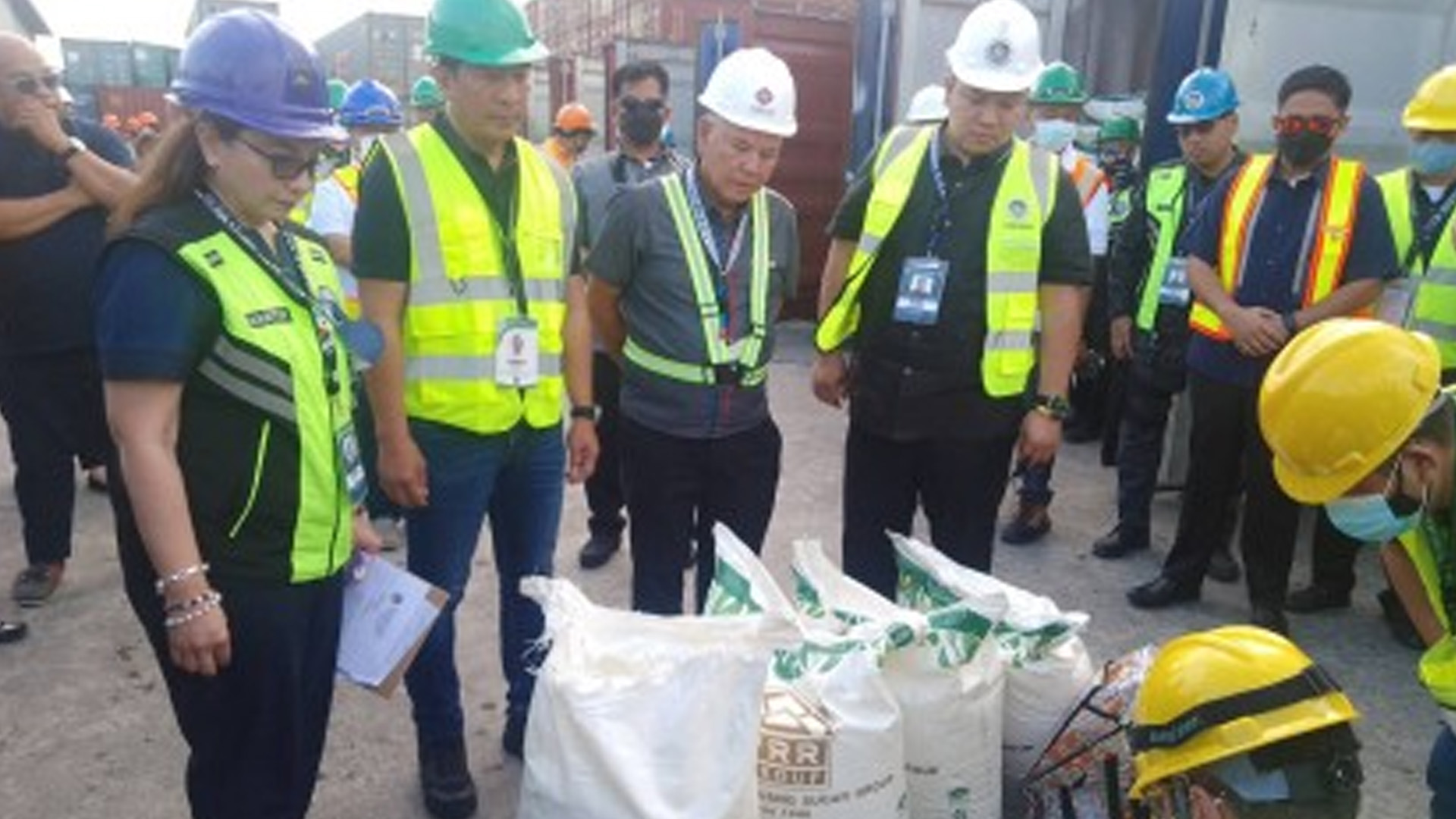President Ferdinand R. Marcos Jr. has directed the Department of Finance (DOF) and the Department of Agriculture (DA) to study the proposal to conduct pre-shipping inspections of agricultural goods in a bid to curb smuggling, Malacañang said Thursday.
The President gave the directive following his meeting with Société Générale de Surveillance SA (SGS) Vice President George Bottomley and Managing Director Cresenciano Maramot in Malacañan Palace.
Communications Secretary Cheloy Garafil said the SGS executives recommended to Marcos the pre-shipping inspections of agricultural commodities.
“The President has directed the DOF and the DA to study the proposal and come out with a mechanism to implement it,” she said.
In a video uploaded by the Presidential Communications Office (PCO) on its official Facebook page, Marcos welcomed the proposal, acknowledging that it would minimize smuggling.
“It will be essentially pre-inspection, pre-shipping inspection,” Marcos said after his meeting with SGS officials.
“Ibig sabihin, bago pa isakay ‘yung produkto sa barko doon sa pinanggagalingan, inspeksyunin na nila para sasabihin nila, ‘Totoo ito. Tama ang timbang. Tama ang quality. Tama ang nasa record na pinanggalingan.’ all of these items. Para hindi na natin kailangan gawin dito sa Pilipinas (It means that the products would be inspected before shipment to make sure that the cargo’s weight, quality, and place of origin are correct. This will no longer require us to do that here in the Philippines),” he said.
Marcos said he is eyeing the expansion of the proposal to cover agricultural invoices so that shipments would be already be paid prior to the arrival in the country.
Under the arrangement, SGS will create a digital invoice in a standardized format prescribed by authorities on an online government platform for registered or authenticated agricultural exporter, seller or supplier, Garafil said.
“The invoices would be available in real time to the Department of Agriculture (DA), Bureau of Internal Revenue (BIR), and Bureau of Customs (BOC), which, according to SGS, would deter importers from manipulating or falsifying invoices and, instead, increase tax compliance, and enable cross-agency trade data reconciliation,” she said.
“The system will likewise ensure that all agricultural importations are recorded and accounted for to prevent hoarding and price manipulation,” Garafil added.
Apart from addressing smuggling, the proposal would also help contain the spread of diseases such as African swine fever and Avian flu, Garafil said, citing the SGS executives’ remarks.
“Conducting pre-shipment inspection and conformity assessment procedures would ensure that the quantity and other specifications of the goods conform with sanitary and phytosanitary import permits and test the presence of diseases, among others,” Garafil said.
Garafil said the exporter would shoulder the inspection and testing fees, as well as the costs of registration or authentication and operation of the platform.
“There is also the need to conduct cost analysis first to make sure that no added burden will be imposed on consumers,” she said.
SGS is a testing, inspection, and certification company established in 1878 with an aim of ensuring the quality and safety of products based on health, safety and regulatory standards. It has 2,650 offices and laboratories and employs 97,000 personnel in 140 countries.
The Philippines contracted the SGS from 1986 to 2000 for the verification of the quality, quantity, and price of imported goods prior to shipment to the country.
According to the United Nations Commodity Trade data for the Philippines, some 20.48 percent discrepancy in the reported values of agricultural imports from 2010 to 2021 were found.
The discrepancy resulted in revenue losses for the government.
For edible vegetables, roots and tubers, the discrepancy was 34.74 percent, while for swine meat (fresh, chilled or frozen), the discrepancy was at 41.89 percent. (PNA)







